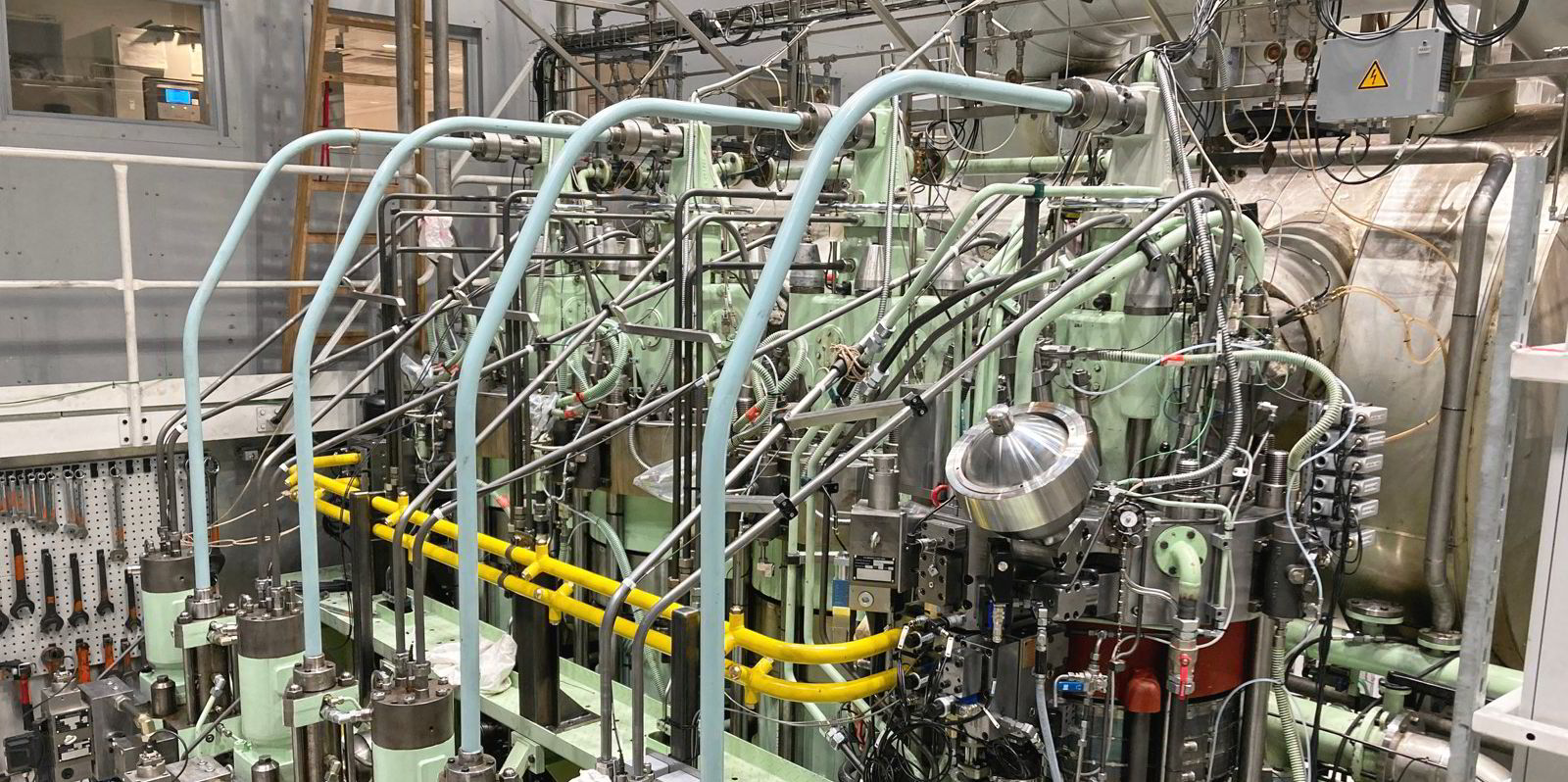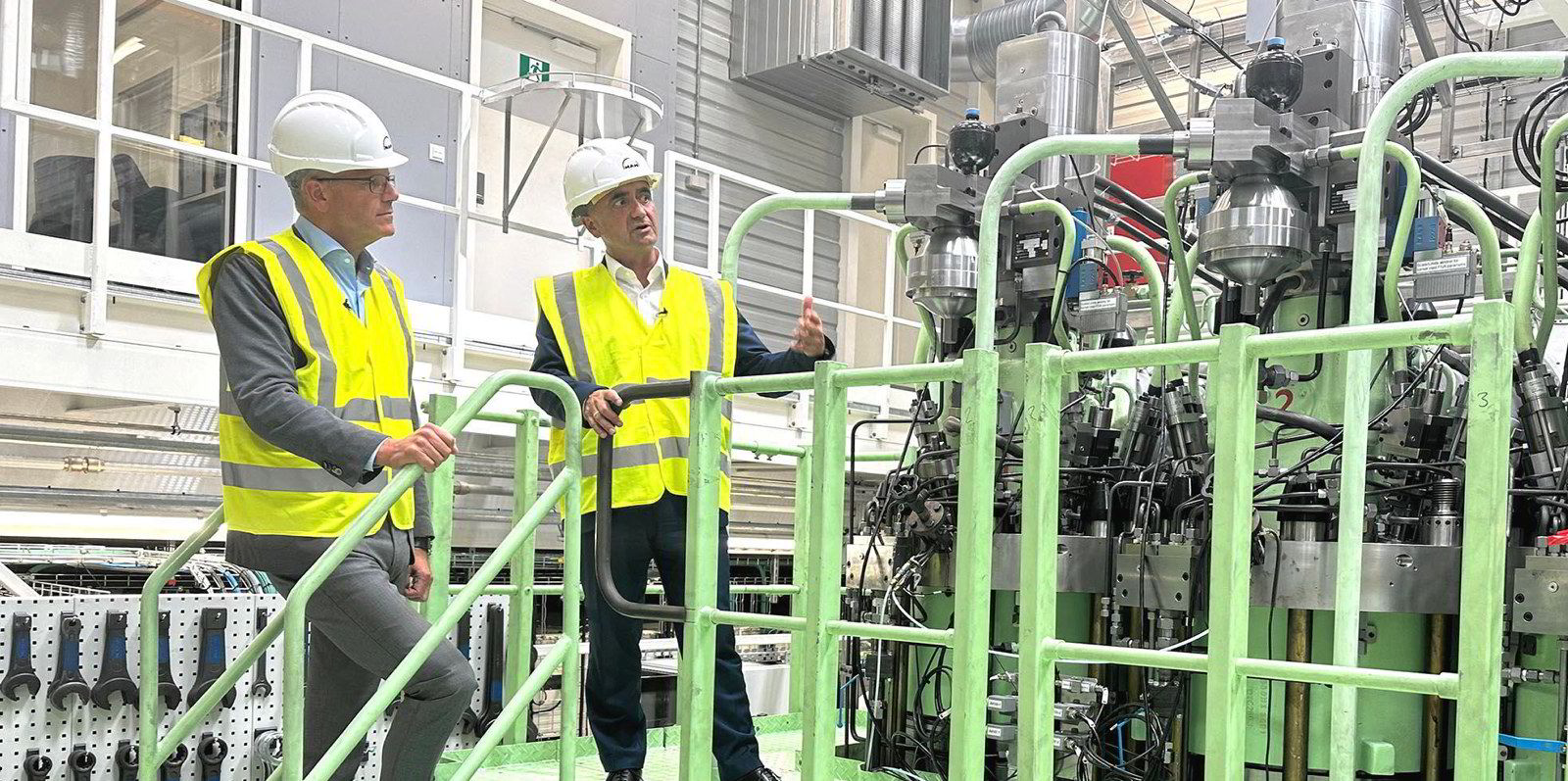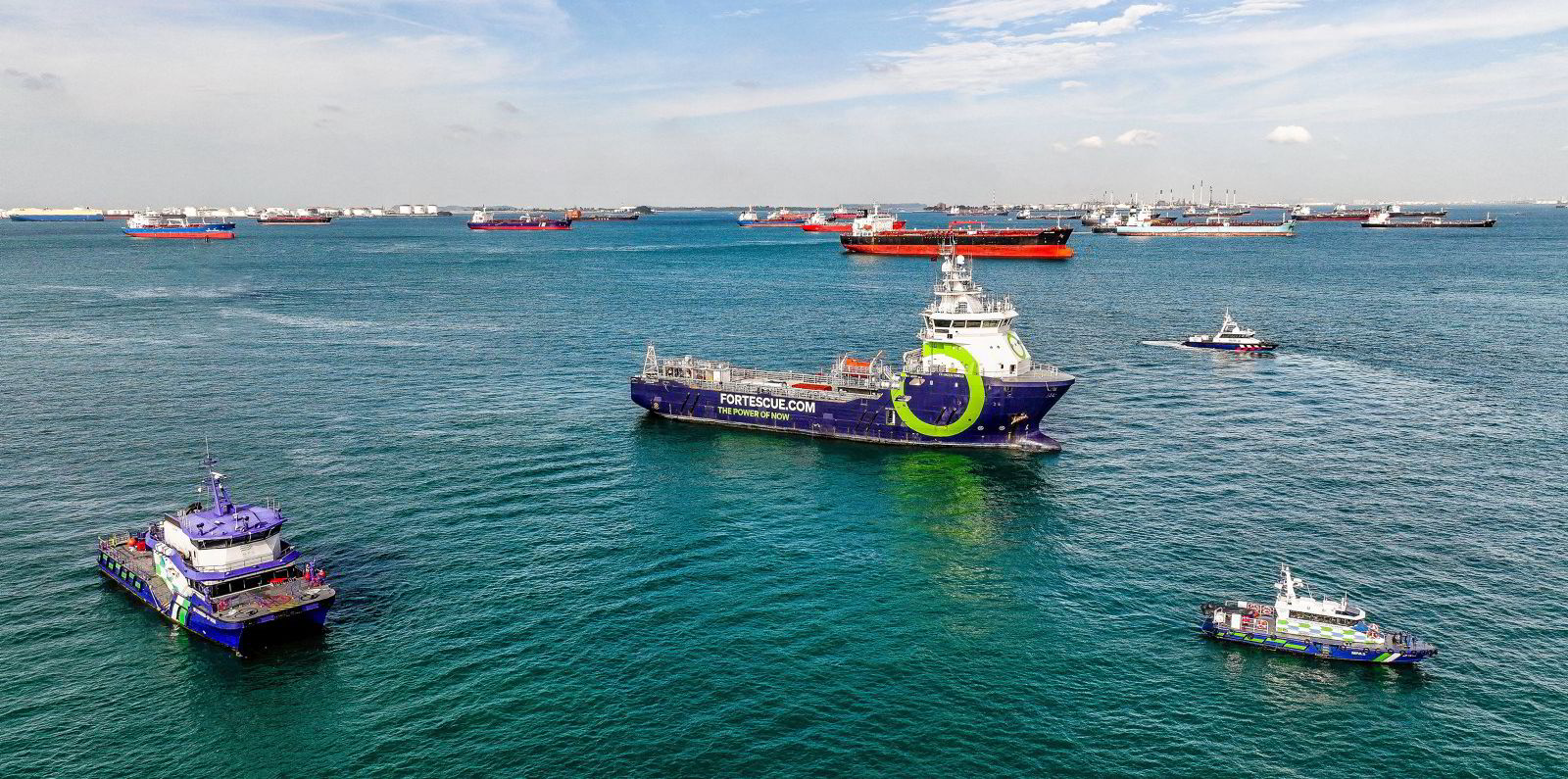Japanese shipowners K Line and NS United and trading house Itochu Corp will own one of the first vessels to be fitted with MAN Energy Solutions’ under-development ammonia-fuelled engines.
MAN ES said it will install its MAN B&W 7S60ME-Ammonia engine on a 200,000-dwt bulk carrier being built at Imabari Shipbuilding for a joint venture of the three companies.
The engine designer said the business represents one of the first projects for its ammonia-powered engine, which is being developed in Copenhagen.
Mitsui & Co — a MAN ES licensee — will build the engine in Japan.
MAN ES revealed to TradeWinds in an interview last month that this first engine was under construction and due to be installed in a newbuilding next year.
Brian Sorensen, head of research and development for the company’s two-stroke business, said: “This project marks another important milestone in our ammonia engine development and indeed for the maritime industry in general.
“It also confirms that we are on the right track in relation to our dual-fuel ammonia concept where we have gained a great understanding of ammonia’s unique characteristics as a marine fuel via our two-stroke engine testing, which we started in early June 2023.
“Equally as important, we are confident of how to handle it safely; it is very satisfying to see our hard work beginning to pay off.”
Bjarne Foldager, MAN ES country manager for Denmark, described the interest in the ammonia engine as “overwhelming” even before testing had started.
He said important lessons had been learned from the ammonia-combustion testing on the engine.
“While the current growth in shipping will increase greenhouse gas emissions, alternative fuels like e-methanol, e-methane and green ammonia will eventually come to compete with fossil fuels, but we need regulation to encourage their adoption in the industry,” he added.
Foldager said regulatory clarity from the European Union and the International Maritime Organization is improving, but the right market-based tools need to be introduced to bring the industry towards carbon neutrality for 2050.
MAN ES head of sales & promotion Thomas Hansen said: “We believe that the success of ammonia as a marine fuel strongly relies on a safe introduction to the market.
“We will therefore monitor a number of engines entering operation at sea to ensure that the engine design and functionality of the auxiliary systems meet our expectations before the engine is formally introduced to our marine engine programme as part of a full sales release.
“In the short term, we expect a fast uptake of ammonia-fuelled engines towards the end of the decade as we obtain positive seagoing experience from the first engines.
“In the long term, we expect ammonia to comprise around 35% of fuel used on board large merchant-marine vessels by 2050 due to lower production cost compared with other e-fuels relevant for large merchant marine vessels.”






